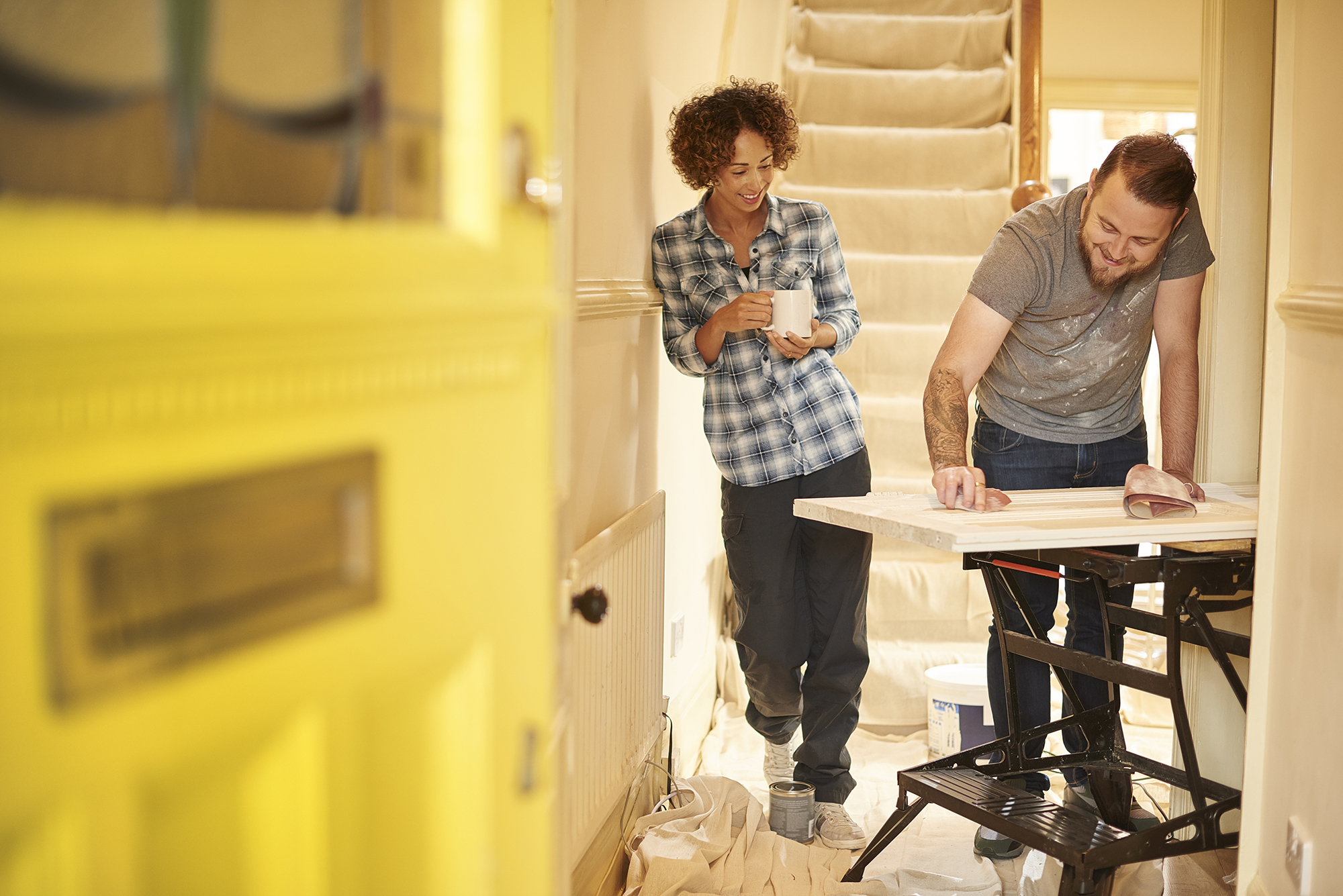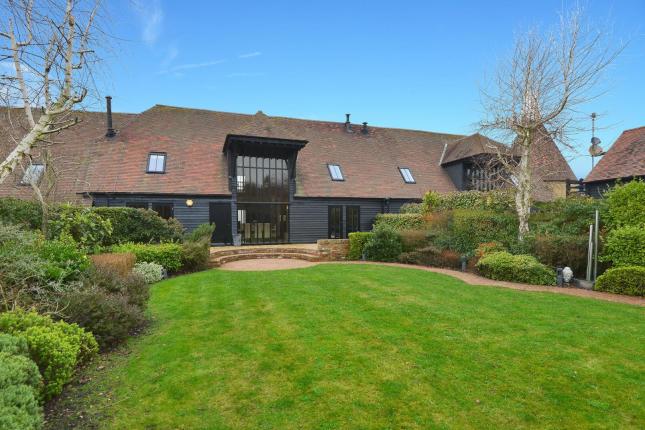

Your home’s resale value is (or at least should be) an important factor to consider when renovating and making home improvements. Surprisingly, the two least expensive home improvement projects have a huge payoff. There are also other reno projects that can provide a great return on investment when you put your home on the market.
However, some “improvements” can actually lower the value of your home and make it less appealing to buyers. These are the home improvement projects that you should avoid.
- 9 backyard improvements that'll increase your home's value
1. Turning a bedroom into a closet
Who doesn’t love a large, walk-in closet? But if buyers have to choose, they’ll place more value on bedrooms than on a larger space to store clothes and shoes. Tyler Forte, CEO at Felix Homes in Nashville, tells us that one of his clients turned a guest bedroom into a walk-in closet for the master suite.
“Generally speaking, a walk-in-closet is a great feature - but not at the expense of an additional bedroom,” he warns. “On average, each additional bedroom can add $10,000 to the value of a home.” On the other hand, if you replace a bedroom with a walk-in closet, Forte says you’re decreasing the home’s value by $7,500 – and that doesn’t even include the cost of materials and labor spent on the project.
Kris Lindahl, CEO and founder of Kris Lindahl Real Estate, which serves Colorado, Minnesota, and Wisconsin markets, agrees. “Converting a bedroom into a larger master closet will likely not increase value because you lost a bedroom,” he says.
- Keep reading: 51 bedroom ideas, trends and styling tips to create the perfect space
2. Combining bedrooms
Combining two small bedrooms to create a larger bedroom sounds like a good idea, right? Older homes may be quaint and have a lot of architectural details, but they almost always have small bedrooms (and bathrooms). “Homeowners, in a misguided attempt to make an old house more ‘current’ combine two bedrooms into a larger one or create a master suite at the expense of another bedroom,” says Greg Kurzner, president/broker at Resideum in Alpharetta, GA.
“But if you turn a 4-bedroom home into a 3-bedroom home – when comparable homes have 4 bedrooms, the house might be worth less after the improvement.” He admits that square footage is important but says that the number of bedrooms and bathrooms will also matter to homebuyers.
Kurzner’s view is shared by Bill Golden, realtor/associate broker at RE/MAX Around Atlanta, GA, who advises against changing the home’s layout in any way that eliminates a bedroom. “In an area of homes with 5 bedrooms, that may not matter much, but if your home is in a neighborhood where most homes have 3 bedrooms and 2 baths, and your renovation changes it to only 2 bedrooms and 2 baths, you may lose some value when you go to sell,” he warns.
3. Permanent customization
Since you’re the person living in the home – and paying the mortgage – it’s natural to want the home to suit your likes and preferences. And that’s fine, as long these changes are easy to neutralize when you decide to sell the home. Lisa K. Lippman, licensed associate real estate broker at Brown Harris Stevens in New York, NY, advises caution when integrating custom colors in a permanent way. “Bright colored stone or tile, an all-black bathroom, or bright blue cabinets in the kitchen will appeal to very specific taste and are not easily or inexpensively undone,” she warns.
Kurzner agrees and also advises against materials and eclectic style that you love – but no one else does. “Even certain decor can have a negative impact on your home's appeal, but at least that can be removed when you move out,” he says. “However, when a buyer feels like they will need to ‘undo’ your improvement and ‘redo’ it over, the improvement has backfired and has likely cost you.”
4. Bold paint colors
Paint is a relatively easy home improvement project, but that doesn’t mean buyers want to spend time and money repainting your home. “Painting your home, either the interior or exterior, in non-neutral colors can decrease the value of your home,” says Chris Fajkos, realtor at Tahoe Mountain Realty in Truckee-Tahoe, CA. You may prefer reds, purples, deep blues, and the like, but don’t assume that buyers will. “Current interior design trends continue to suggest that buyers want and expect neutral colors, and if you go against the grain, you may end up putting off buyers who would’ve paid top dollar for your home.”
Here’s something homeowners tend to forget. “Your home is only worth as much as someone is willing to pay for it, so if prospective buyers see a costly paint job ahead of them, they might either offer under the asking price or pass on the home altogether,” Fajkos warns.
5. Not maintaining the home’s architectural style
A home improvement project can also decrease the house’s value if you use incongruous or cheap materials, according to Golden “If you have a Tudor style home with diamond-paned windows, and you replace them with plain vinyl windows that don't match the home's style, you will decrease your home's value,” he says. “Yes, you have new windows, but if you've ruined the architectural style of the home, you have not improved its value, and more than likely you have decreased its value.”
6. Lowering ceilings
Buyers love high ceilings, which open up spaces and make rooms appear to be larger than they really are. Lower ceilings can probably save on energy bills, but they can also induce feelings of claustrophobia. Keep that in mind if you’re thinking about altering the height of your ceilings. “Lowering ceilings has long been a simple solution for lighting, wiring, or to create a delineation between an entrance gallery and living space,” says Lippman. “However, lowering a ceiling should be done sparingly, as it can also lower the property’s value.”
7. Adding a pool
Some buyers love swimming pools. However, experts are divided on how a pool affects your home’s value. Sometimes, it may depend on which area of the country you’re in. For example, Golden says he sold a home (in Atlanta) this spring that had a pool, and was inundated with offers. “Now, in the era of COVID, when people have gotten used to staying home more, pools are at a premium around here,” he explains.
But in colder climates, you might get a different response. “At least in Minnesota, installing a pool can be a downside to many potential buyers, and thereby have the effect of decreasing a home's value given the limited amount of time you can use a pool in Minnesota and the costs associated with maintenance and repair,” Lindahl says.
And even in warm climates, not every buyer will appreciate a swimming pool. “That’s one of those home improvement projects that isn’t going to return a reasonable percentage of the cost of the improvement,” says Kurzner. “No matter how nice the pool, many people don't want them or the maintenance and costs associated, so that can negatively affect value.”
Join our newsletter
Get small space home decor ideas, celeb inspiration, DIY tips and more, straight to your inbox!
Terri Williams is a journalist with real estate, home improvement, and product review bylines at Architectural Digest, Real Simple, Realtor.com, Bob Vila, Yahoo, MSN, The San Francisco Chronicle, The Houston Chronicle, and Apartment Therapy. She also covers business topics, with bylines at USA Today, The Economist, US New & World Report, Verizon, and several other brands that you’ve probably heard of. Follow her adventures on Twitter.
